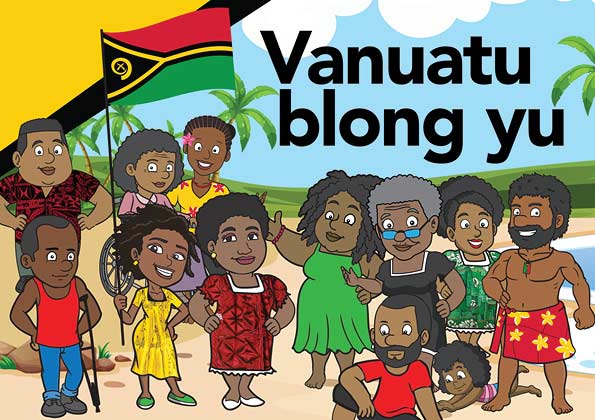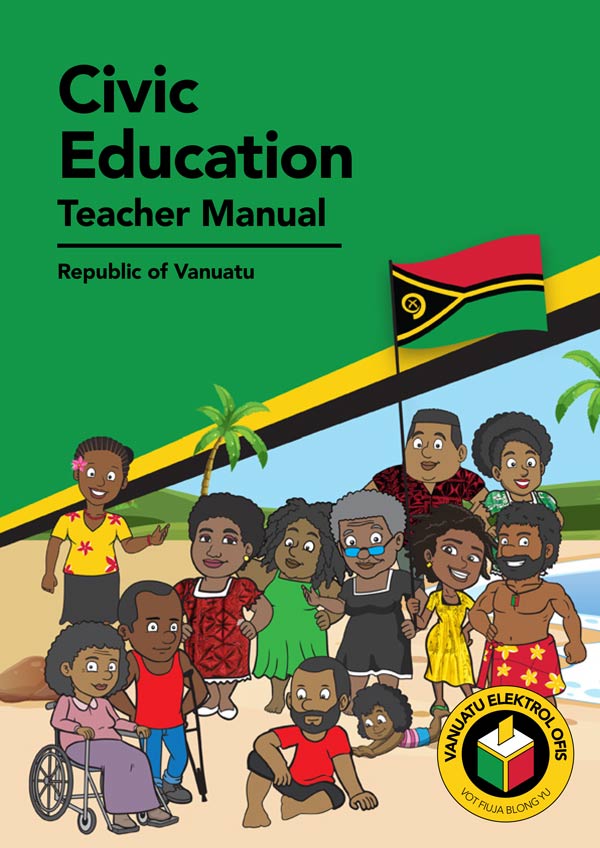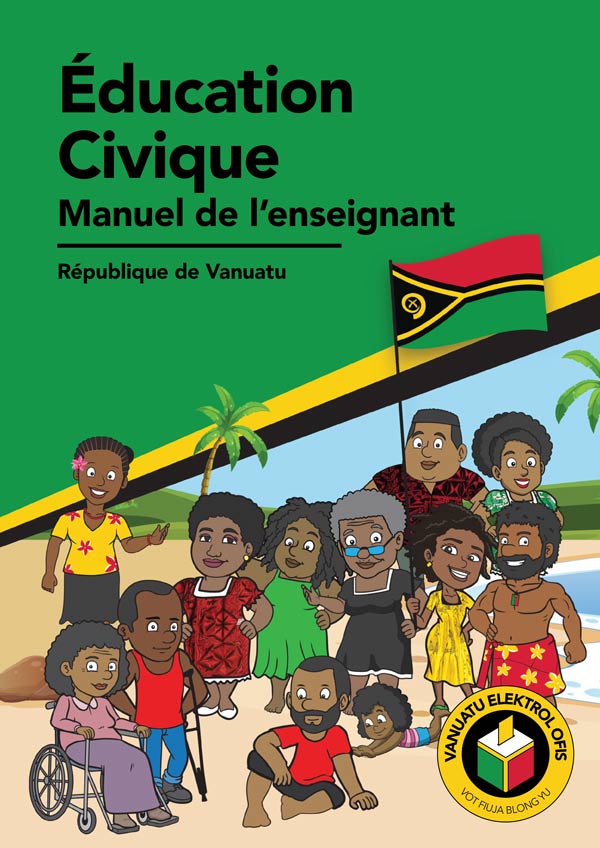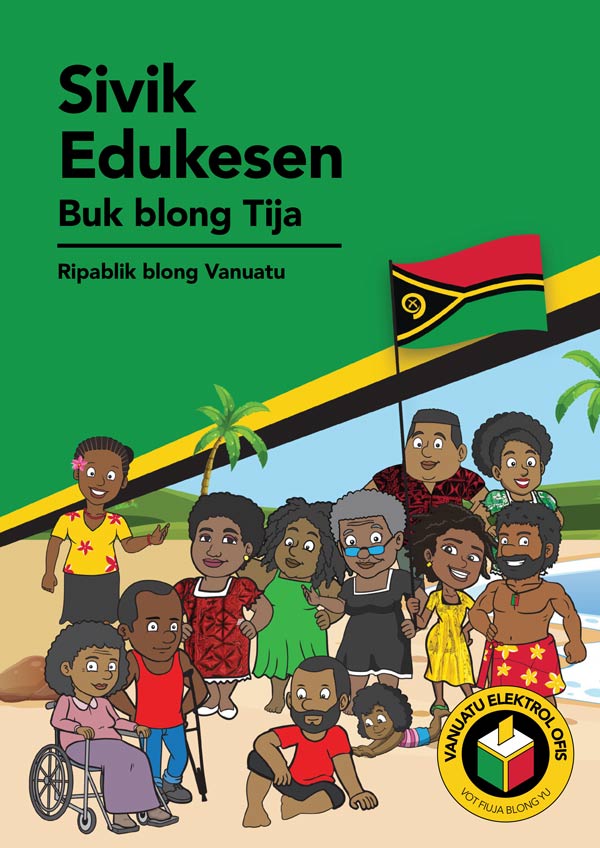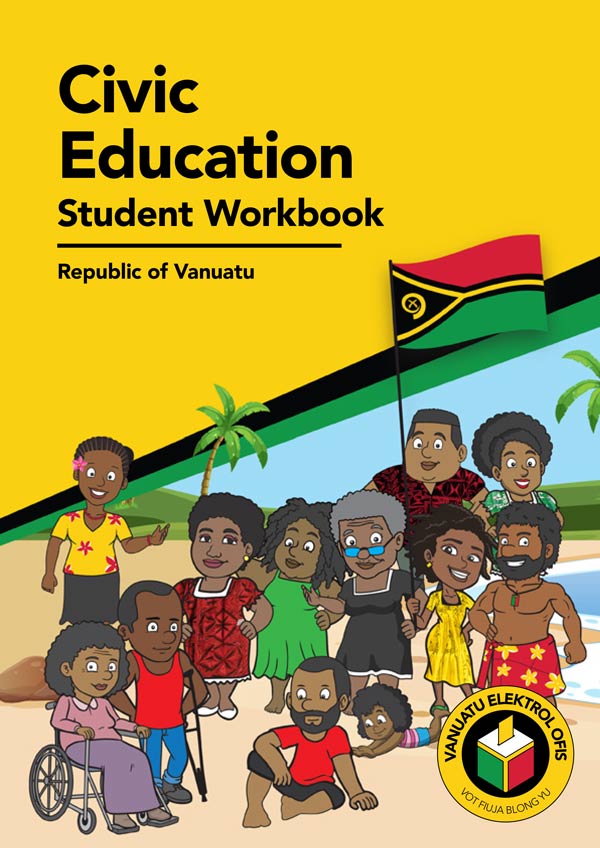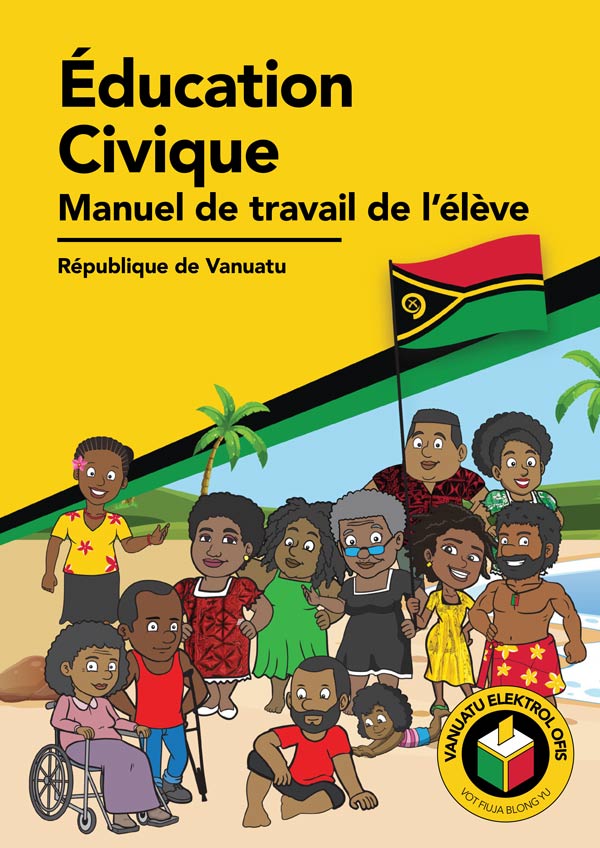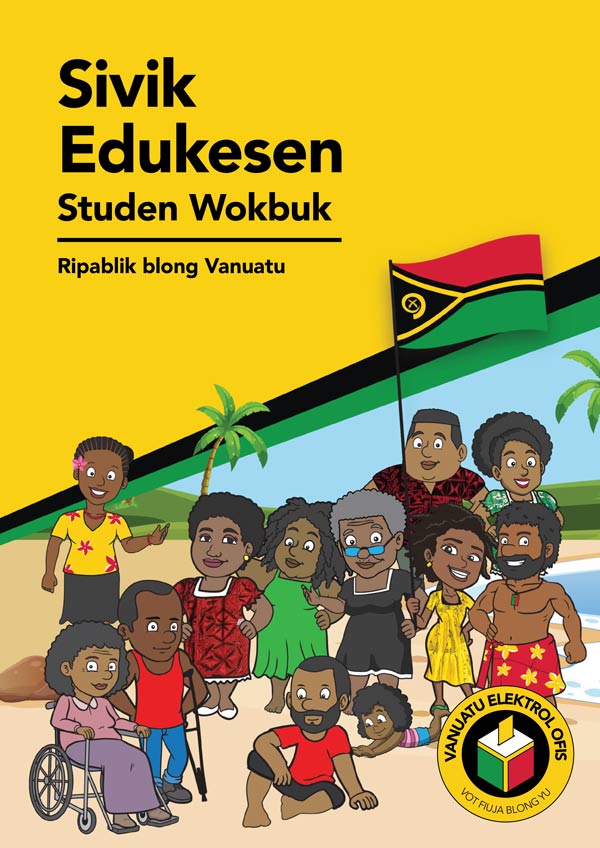How blong VOT wetem SINKEL BALOT PEPA
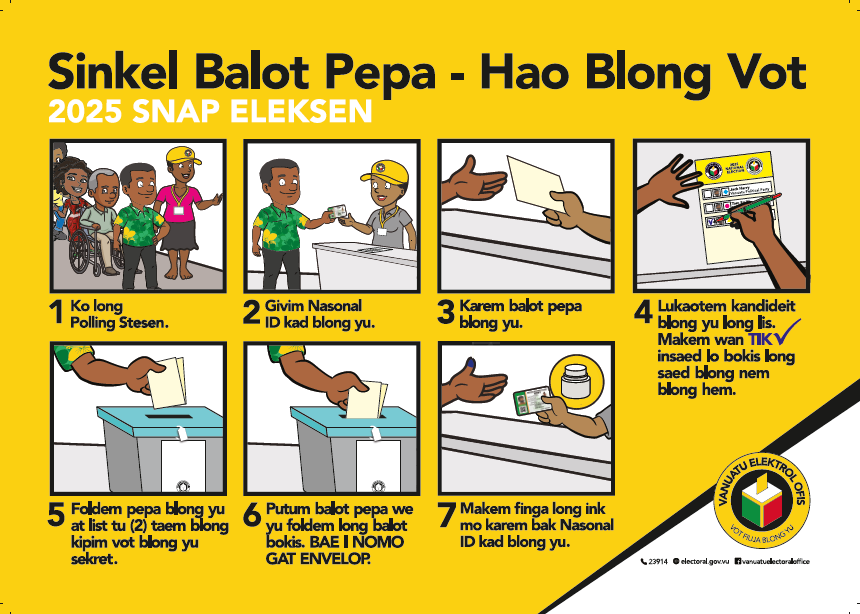
Polling Manual blong Ol Ofisol
Polling manual ya hemi olsm wan gaed laen blong olgeta Polling Ofisol ie usum long taem blong Polling dei.
Click long ples ya blong save lukim.
VOTER INFORMATION, VOTER AWARENESS AND VOTER EDUCATION
Elections require citizens to participate in the electoral process and to make an informed decision when voting. Elections imply decision-making, and democracy implies actively participating. Decision-making and active participation are based on information, skills, values and practices, which have to be provided to the entire voter population. Voter information, awareness and education campaigns provide voters with the knowledge, skills and values to do this.
There is, however, a common misunderstanding regarding use of the terms voter information, voter awareness and voter education. While these concepts are inter-related and complementary (and can occasionally overlap), they need to be distinct when designing specific activities and programs to avoid confusion and ambiguities. There are crucial differences between these concepts and their application: (a) voter information enables eligible citizens to vote, including basic facts about the elections and voting; (b) voter awareness addresses voters' motivation and preparedness to participate fully in elections and aims to increase trust in the electoral process. This includes the secrecy of the ballot, the value of each vote, freedom of choice and the impact of voting on public accountability; (c) voter education refers to a longer-term pedagogical process involving more complex information, including why the electoral process is important and necessary, the link between human rights and voting rights, the relationship between elections and democracy and the conditions necessary for democratic elections. Such concepts involve explanation, not just a statement of facts.
The distinction between these concepts is not merely “academic”: they are essential when deciding on concrete actions and programs, because they help determine the scope of the programs, clarify the contents of messages, define the timing and duration of the efforts, identify appropriate strategies and, not least, to determine who should be involved in efforts to promote them.
It is often assumed that the responsibility for informing, motivating and educating voters is the sole responsibility of the electoral authorities. In this debate, only one thing is the subject of almost complete agreement: development of voter information messages is the exclusive responsibility of the electoral authorities. What is required is the production and delivery of official messages, bearing the stamp of the authorities. The extent to which an electoral authority moves beyond basic voter information into the realm of awareness and education is determined by their legal mandate and the operational capacity and available resources to become involved and, therefore, the situation differs in each country. In some countries, the electoral management body (EMB) is mandated to conduct not only voter awareness activities but also voter education; in others the EMBs are limited to provide voter information within very restricted guidelines. In many countries, voter education is an integral part of broader civic education programs, with or without the active participation of the electoral authorities.
As mentioned, in Vanuatu the electoral law mandates the VEO to provide information to voters and the public in general. While developing the contents of voter information is the responsibility of the EC and VEO, they can be supported in the transmission of those messages by various stakeholders, always under the oversight of the electoral authorities to avoid misinformation and misunderstandings.
The EC and VEO recognize that voter information and awareness should target all possible electors, and many of its activities are conceived in this light. Nevertheless, they are also aware that certain groups of population, which have traditionally been marginalized voters, require specific information and awareness efforts, in order to promote inclusiveness in the electoral process. In order to be credible, an election is required to include all various population groups as equitable partners. Active participation of all segments of society in political processes is an indispensable aspect of a strong democracy. In this context, the EC and VEO make special information and awareness efforts targeting women, youth and people with disabilities.
WOMEN
In 1995, the Government of Vanuatu ratified the Convention on the Elimination of All Forms of Discrimination against Women (CEDAW), committing to:
“Undertake a series of measures to end discrimination against women in all forms, including:
- to incorporate the principle of equality of men and women in their legal system, abolish all discriminatory laws and adopt appropriate ones prohibiting discrimination against women;
- to establish tribunals and other public institutions to ensure the effective protection of women against discrimination; and
- to ensure elimination of all acts of discrimination against women by persons, organizations or enterprises.”
Vanuatu’s Constitution and laws do not discriminate, but there still exist cultural and customary barriers to women in the electoral environment, though the Vanuatu Electoral Office is working to make improvements. VEO is the co-chair of the Technical Working Group for Advancing Women’s Leadership and Political Participation with the Department of Women’s Affairs.
In 2014, Vanuatu passed the first Temporary Special Measures (TSMs), reserving 30% of Municipal Council seats for women. While TSMs have not been adopted at the Provincial or Parliamentary level yet, the Municipal TSMs have been widely successful in increasing women’s political participation.
In the 2023 Luganville Municipal election, 29% of candidates were women (as opposed to only 8% of candidates in the 2022 National Snap Election). Luganville Municipal Council is now almost fully gender balanced with 6 of the 13 seats held by women.
In November 2023, VEO and UNDP’s VEEP teamed up to launch the “Liftemap Fiuja” inclusion strategy, a comprehensive approach targeting 9 areas to increase women’s political participation and representation – Custom, Culture, Chiefs, Churches, Curriculum, Civic Education, Community, Consultation, Coordination.
VEO and the Electoral Commission have been working to create other policies to improve women’s political participation and in December 2023, Parliament passed a comprehensive electoral reform package including many aspects that affect women. In the Political Parties Registration Act of 2023, at least one member of the executive committee must be a woman to register as a political party. Vanuatu statute also now stipulates that at least one member of the Electoral Commission must be a woman.
At the practical level, VEO and the Electoral Commission are committed to mainstreaming gender throughout all its work. All civic and voter education awareness materials are representative of women, men, youth, and people with disabilities and VEO has a specific poster to encourage women of all ages to join the political processes. Polling and VEO staff are also gender balanced.
YOUTH
The political participation of youth in electoral processes is substantially lower than for other age groups. That is a global trend and Vanuatu is no exception, as shown by the 2016 mini census data on registered voters by age groups. Therefore, there is a special need to outreach to the young citizens, first to register and get their National ID cards, then to involve them as voters. This is why VEO and UNDP’s VEEP have partnered to develop the civic education materials that will be streamlined across schools.
The Vanuatu Electoral Office engages youth as often as possible, by employing them as Data Verification Officers (DVOs) of all civil status and voter registration efforts, conducting voter outreach, and capacity building. VEO partners with the Vanuatu National Youth Authority to register voters around the country, especially in remote and rural communities, encouraging youth themselves to register to vote and building their capacities in data collection and technologies. VEO also works closely with the Vanuatu National Youth Council, as part of the Voter Awareness Committee.
IMPROVING ELECTORAL INCLUSIVE PRACTICES FOR PEOPLE WITH DISABILITY (PWD)
The Vanuatu Electoral Office (VEO) has been targeting inclusion in transparent electoral practices through collaboration with Civil Registration and Identity Management (CRIM) Department supporting a new National Identification database with an indicator for those who wish to self-identify as having special needs. With critical data such as this, VEO can better target polling stations with the appropriate accessibility modifications as much of Vanuatu’s infrastructure still lacks accessible measures for all people. Across the Pacific, the electoral authority in Vanuatu has been recognised for its innovative practices designed to encourage people to register and vote - brochures and awareness booklets, a dedicated website with all the latest electoral information, use of social media, SMS messaging, radio and talk-back shows, television interviews, training for candidates, training of polling staff, videos and information workshops have been emphasising the importance of everyone’s vote.
The Electoral Office has mainstreamed accessibility throughout its trainings and policies and is always working to make more improvements. Accordingly, consultations and discussions within the disability sector have resulted in a VEO PWD Action Plan in which the following activities have been identified for action:
- “Nothing about us, without us” is the mantra of the NGO disability sector in Vanuatu and VEO is working closely with the Ministry of Justice and Community Services (MoJCS) Human Rights Division and Disability Desk and Vanuatu Society for People with Disabilities (VSPD).
- Prepare and deliver a Sensitisation Workshop. Staff of the Vanuatu Electoral Office & Civil Registration and Vital Statistics Department (CRVS) should be based on WSG principles;
- Making polling stations and electoral offices accessible as well as ensuring at least one polling booth is modified for mobility challenges.
- Include NSDP target Society 4.5.1 Proportion of Government Offices with ramp access or disability friendly rating (includes hearing & sight impaired disabilities) in VEO and VEC Business Plan;
- Repeat PWD training led by Vanuatu Skills Partnership for VEO team at annual MoIA and VEO Business Plan Workshop;
- Utilise already established PWD NGO networks for training and to disseminate materials & information.
- Ensure a variety of platforms are utilized for information dissemination – radio, social media, television for those who are sighted, with strong images and little text.
In 2024, VEO and UNDP’s VEEP are conducting a comprehensive voter awareness campaign and registration effort to ensure every person 18 years or older had the capacity to vote prior to the 2024 National Referendum. The awareness campaign includes a film and song encouraging all PWD or their family members to ensure every PWD has their National ID card, connects with MoJCS Disability Desk or VSPD and updates their voter registration. Though the onus is not all put on a person with a disability to access government services, as the Principal Electoral Officer Guilain Malessas directed all Data Verification Officers (DVOs) before they began their national registration efforts that “We do not leave one single person behind,” ensuring that every Area Administrator was aware of the voter registration efforts and would inform the DVOs of any PWD and their locations should they need to go to their homes to get them National ID cards and voter registrations updated.
One key barrier to PWD in elections is accessibility, and VEO is well aware of this face. Accessibility modifications are still under discussion and VEO is working on best approaches to develop sustainable changes to elections’ accessibility. In December 2023, Parliament passed the Electoral Act, which removed Proxy voting as a means to vote, reducing fraudulent voting. Many PWD struggle with Proxy voting as those who are not living with a disability can take advantage of the system. VEO is still working to develop new and better options for PWD to vote, such as e-voting.
